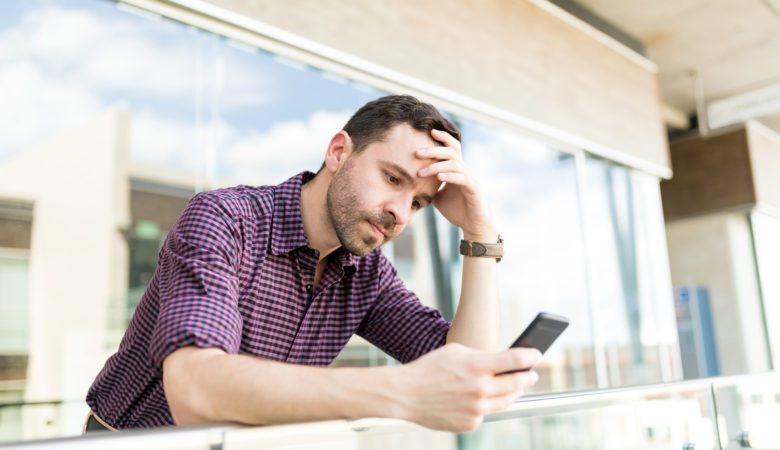Is Social Media Taking its Toll on Your Mental Health?

Twitter. Facebook. Instagram. TikTok. Snapchat. Reddit. YouTube. If you belong to any of these social media services, they might just be damaging your mental health.
On one hand, the internet and modern technology are wonderful inventions. We can keep in touch with faraway friends, absorb new perspectives from academics, professionals and other experts, stay on top of the news and engage with the world around us.
On the other hand, how many inspirational memes and baby photos can we really take, before it starts messing with our mental well-being?
If you’ve ever envied a friend’s tropical vacation or had your feelings hurt when no one liked your new haircut selfie, it’s time to reevaluate your social media usage. While incredibly useful at times, social media is linked to anxiety, depression and other health problems. Here’s what you need to know.
Why is it so hard to quit social media?
Social media usage has exploded since the early 2000s—back in the days when you had to have an .edu email address to join Facebook. In the last two decades, it’s become a ubiquitous part of our lives: follow that donut shop on Instagram for a free donut, retweet a political bon mot on Twitter and cringe at the Boomer memes on Facebook. Nearly 70 percent of adults and over 80 percent of teenager use social media on a regular basis.
Even when you’re cringing at your uncle’s “ball and chain” jokes or groaning at the latest version of the ice bucket challenge, there’s a good chance that you’ll still come back for more. That’s because social media taps directly into our brains’ reward centers. It’s like gambling: once you experience the dopamine rush of “winning” (i.e., getting likes and comments), your brain is primed to do it again.
Social media can boost your self-esteem—there’s nothing quite like the approval of friends, family and a thousand of your closest internet acquaintances—but it can also be devastating. Any teenager can tell you that people can be vicious, especially when hiding behind anonymous profiles. As we make ourselves vulnerable in the hopes of affirmation, we also open ourselves up to brutal feedback. Plus, many people judge themselves based on what their friends seem to be experiencing: youth, beauty, engagements, weddings, kids, promotions. Yet the mere promise of future dopamine hits is enough to make us overlook that possibility and open up the apps, once again.
Unfortunately, social media usage is so prevalent right now, quitting makes people fear they’ll lose touch with friends and family. Because it’s easier to scroll through a feed and hit a “like” button than to reach out and have quality conversation, especially when we’re all busy and stressed, that fear might be valid.
Balance, not burnout
The key to improving your social media health is to aim for balance. Because excessive social media use can take a physical, emotional and mental toll on your health, you should know when you’re approaching burnout.
Here are some ways to balance social media usage:
- Turn off or limit notifications: The validation you get from the “ping” of a new like notification can be affirming, but it feeds into the addiction cycle. Try limiting your phone and other notifications to direct messages only.
- Curate your feed: The mute and block buttons exist for a reason. If Aunt Bertha just can’t stop posting incendiary political commentary, mute her. The same goes for those friends who won’t shut up about their three-month honeymoon while you’re wondering if you’ll make rent. And it should go without saying that bullies and trolls need to be blocked. In other words, if it makes you feel bad about yourself, you don’t need to look at it.
- Try parental controls on yourself: Many devices have apps and settings that can limit how long you can spend on particular apps. If you need to quit cold turkey for a couple weeks, this can be an effective way to limit yourself.
- Reach out to loved ones in another way: How long has it been since you’ve sent an email just saying “Hey, I’m thinking about you, how’s life?” Or—ugh—picked up the phone to actually call someone? Try substituting other forms of contact for social media, and see if it helps your relationships with others (and yourself) improve.
The bottom line: social media can be a blessing and a curse. It mostly depends on how you use it, and whether you have other outlets to boost your self-esteem and socially connect. Try the tips above to limit your usage, and see if you notice a physical, emotional and mental health difference.

